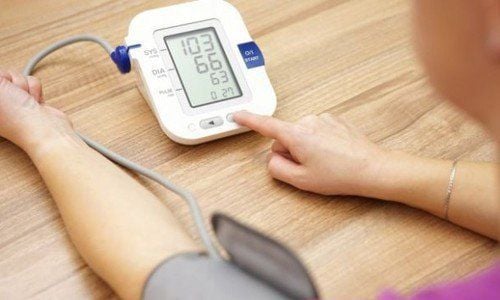High blood pressure is one of the factors that lead to cardiovascular problems. A balanced and healthy diet is considered a "guideline" to help you prevent and effectively control high blood pressure.
1. Citrus fruits are foods for people with high blood pressure
Lemons, oranges, and grapefruits are fruits that are very effective in lowering blood sugar because they contain many vitamins, minerals, and plant compounds.
A 5-month study of 100 Japanese women showed that drinking lemon juice daily combined with light exercise, such as walking, can reduce diastolic blood pressure because lemons contain powerful citric acid and flavonoids.
Other tests have also shown that drinking grapefruit and orange juice can help reduce high blood pressure. However, grapefruit and grapefruit juice can interfere with the action of common blood pressure-lowering drugs. Therefore, if you have high blood pressure, you should consult your doctor before adding fruit to your daily diet.
2. Fatty fish types are beneficial for people with high blood pressure
According to nutrition experts, people with high blood pressure should add more fatty fish to their daily diet, as these fish contain omega-3, which is very beneficial for cardiovascular health. This type of fat helps lower blood pressure by reducing inflammation and decreasing the activity of compounds that cause blood vessel constriction, such as oxylipins.
In particular, people with higher omega-3 levels in their blood tend to have significantly lower systolic and diastolic blood pressure compared to those with lower levels of this fat in their body.
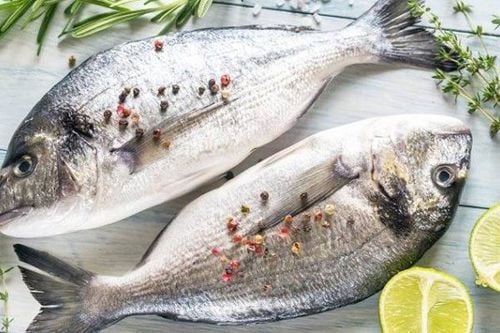
3. Swiss chard is a food for people with high blood pressure
Swiss chard is a leafy green vegetable that contains many nutrients that help regulate blood pressure effectively. With 145 grams of Swiss chard, it will provide about 17% of potassium (equivalent to 792 mg) and 30% of magnesium in the recommended daily diet.
Therefore, for people with high blood pressure, increasing the daily potassium intake by only about 0.6 grams will reduce systolic blood pressure by 1.0 mmHg and diastolic blood pressure by 0.52 mmHg.
In addition, magnesium is also essential for regulating blood pressure. This nutrient helps reduce blood pressure by acting as a natural calcium channel blocker, which can prevent the movement of calcium into the arteries and heart cells, contributing to the relaxation of blood vessels.
4. Pumpkin seeds are good for people with high blood pressure
Pumpkin seeds are on the list of foods beneficial for people with high blood pressure. These seeds are rich in important nutrients (potassium, magnesium, and arginine), which help effectively control high blood pressure.
Additionally, pumpkin seed oil has been proven to be a natural remedy for controlling high blood pressure. Supplementing with 3 grams of pumpkin seed oil daily for 6 weeks can significantly reduce systolic blood pressure compared to using a placebo.
5. Beans and lentils are good for people with high blood pressure
Beans and lentils are rich in fiber, potassium, and magnesium, which help regulate blood pressure. Studies have shown that eating these beans can effectively reduce high blood pressure.
In particular, eating beans and lentils instead of other foods will significantly reduce systolic and diastolic blood pressure in people with or without high blood pressure.
6. High blood pressure; eat berries
Berries are an ideal choice for people with high blood pressure. They also help reduce risk factors for cardiovascular disease.
Berries contain a high amount of antioxidants, especially anthocyanins, which help increase nitric oxide levels in the blood and reduce the production of molecules that constrict blood vessels, thereby regulating high blood pressure in the body.
Some types of berries that people with high blood pressure should add to their diet include raspberries, blueberries, strawberries, black cherries, and blackberries.
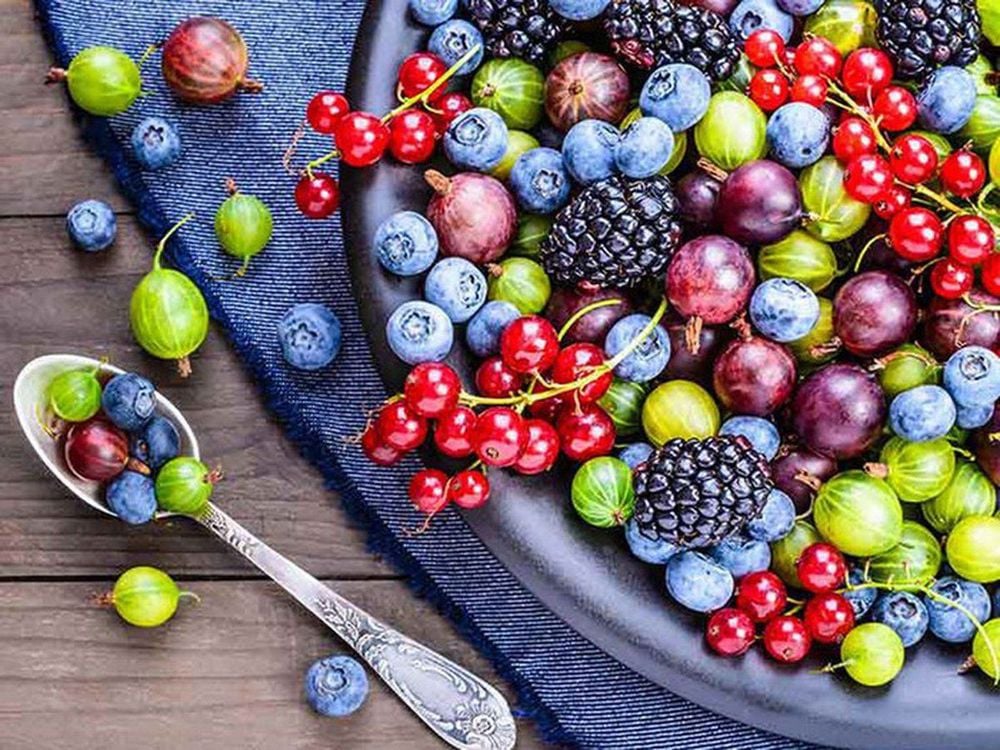
7. Eat amaranth when you have high blood pressure
Amaranth is one of the foods for people with high blood pressure. Adding 30 grams of amaranth to your diet every day can reduce the risk of high blood pressure by 8%.
In addition, amaranth also contains a lot of magnesium. In 246 grams (one cup) of cooked amaranth, it will provide about 38% of your daily magnesium needs.
8. Pistachios are food for people with high blood pressure
If you're wondering "what to eat with high blood pressure," pistachios are considered an ideal choice. These nuts have relatively high nutritional value, and consuming them can help you maintain healthy blood pressure levels.
The nutrients in pistachios are also essential for cardiovascular health and blood pressure regulation, particularly potassium. A recent review showed that eating pistachios has a positive effect on reducing both systolic and diastolic blood pressure.
9. Carrots are good for people with high blood pressure
Carrots are a very nutritious vegetable, containing many phenolic compounds, such as Caffeic, p-coumaric, and chlorogenic acid. These compounds have the effect of relaxing blood vessels, reducing inflammation, and reducing high blood pressure.
Although carrots can be cooked or eaten raw, experts recommend that you eat raw carrots to reduce high blood pressure. In addition, drinking 473 ml of fresh carrot juice daily for 3 months can help reduce systolic blood pressure, but has no significant effect on diastolic blood pressure.
10. People with high blood pressure should eat celery
Celery is a popular vegetable commonly used in daily diets. It contains compounds called phthalides, which help relax blood vessels and reduce high blood pressure.
Therefore, people with high blood pressure should include celery in their daily diet.
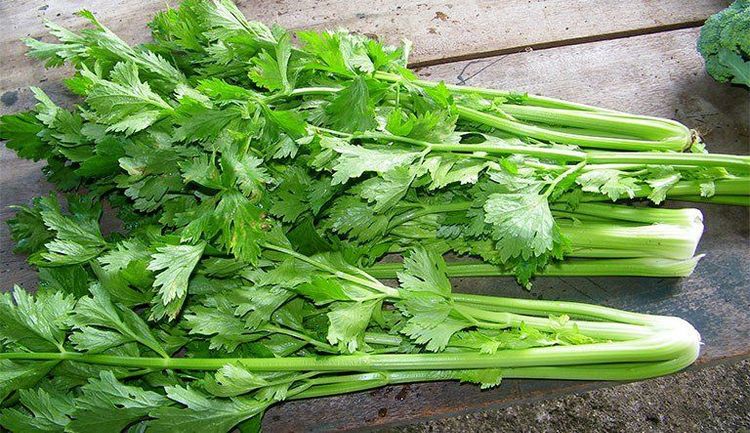
11. Tomatoes are good food for people with high blood pressure
Tomatoes and tomato products contain many essential nutrients, including potassium and the carotenoid pigment lycopene. This pigment is very beneficial for cardiovascular health, while also contributing to reducing risk factors for high blood pressure.
12. High blood pressure should eat broccoli
Broccoli is known for its many beneficial effects on health, including the health of the circulatory system.
Broccoli provides many flavonoid antioxidants, which help reduce blood pressure by increasing nitric oxide levels and blood vessel functions in the body.
Therefore, if you add broccoli to your daily diet, it will help reduce the risk of high blood pressure effectively.
13. Greek yogurt is a food for people with high blood pressure
Greek yogurt is a nutrient-rich dairy product that contains high levels of calcium and potassium, which help regulate blood pressure. A recent study showed that consuming 3 servings of Greek yogurt daily can reduce the risk factors for high blood pressure.
14. Herbs and spices to add to the diet for people with high blood pressure
Some herbs and spices contain compounds that help lower high blood pressure and relax blood vessels.
Herbs and spices you should add to your daily diet include: cilantro, celery seeds, black fennel, saffron, lemongrass, cinnamon, ginseng, sweet basil, cardamom, and ginger.
15. Chia seeds and flax seeds are good for people with high blood pressure
Chia seeds and flax seeds are small seeds but contain many nutrients necessary for regulating blood pressure.
You should supplement about 35 grams of chia seeds every day to help reduce high blood pressure instead of using some placebo drugs.
16. Eat beets if you have high blood pressure
Beets are a nutritious food, rich in nitrates, which help relax blood vessels and effectively improve high blood pressure.
A 2-week study in more than 20 people with high blood pressure showed that consuming 250ml of beetroot juice and 250 grams of cooked beets can significantly reduce blood pressure. However, these effects only last for a short time, so you need to combine them with other blood pressure control measures.
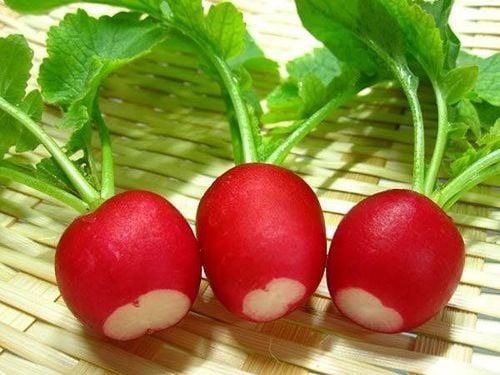
17. Spinach is a food for people with high blood pressure
Similar to beets, spinach is rich in nitrates, antioxidants, magnesium, calcium, and potassium, which help regulate high blood pressure.
Consuming 500ml of spinach soup within a week can help lower high blood pressure levels in the body. Additionally, this vegetable helps reduce arterial stiffness and greatly improves cardiovascular health.
In conclusion, alongside a proper diet, full use of prescribed medication, and maintaining a scientific, healthy lifestyle, people with high blood pressure should have regular check-ups to monitor their condition and prevent complications.
To arrange an appointment, please call HOTLINE or make your reservation directly HERE. You may also download the MyVinmec app to schedule appointments faster and manage your reservations more conveniently.
Reference source: healthline.com
To arrange an appointment, please call HOTLINE or make your reservation directly HERE. You may also download the MyVinmec app to schedule appointments faster and manage your reservations more conveniently.





